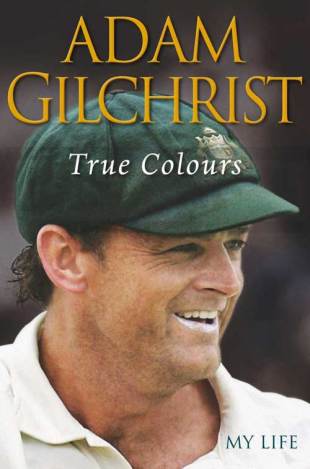Superman weeps
Gilchrist's weighty autobiography reveals that perhaps his greatest success was hiding his insecurities during his playing days
Peter English
14-Mar-2009
|
|
 |
Sitting in his batting gear before smoking the second-fastest century in Test history, Adam Gilchrist was crying in the WACA dressing room, having decided he was retiring. "It's time. I just know my heart isn't in it anymore."
Unable to cope with his failure in England a year earlier in 2005, he didn't think he was good enough and knew he had been worked out by Andrew Flintoff, who had only to go around the wicket to upset him. Before walking out Gilchrist knew it was time to create a space for the next rung, guys who wanted it more. Fifty-seven balls later he had a century, Australia were on the way to a 5-0 Ashes whitewash, and he decided to stay a bit longer.
Gilchrist is the most successful wicketkeeper-batsman of all time, but perhaps his greatest success was covering up his insecurities, anxieties and sensitivities with the "cape of bravado" he believes all players wear. Even after finishing 608 pages on Gilchrist's life in True Colours, it is bewildering to believe how much he suffered from self-doubt throughout the sort of career a specialist batsman would aspire to, and one that is as impossible to capture for wicketkeepers as a thick leg glance. He was someone who could be looked at on the field to judge his mood, but the Gilchrist scale always seemed to swing from elation to mild annoyance.
Apart from a difficult period during and after England in 2005, he was surely a man who played strokes without fear and lugged around an unshakeable belief. However, he was vulnerable, particularly in a slump, and it was sensible to leave his revelations about his see-sawing feelings until after his career closed last year. He wasn't a superman, but basically normal in every aspect except owning an amazing ability to launch cricket balls and grab catches.
One section is titled "An Emotional Man" and his most stirring passage comes after his dismissal in a Test in South Africa in 2005-06. "I hate this game. No, not the game, I hate this feeling. The fear of failure lies within everyone. But since the Ashes I've continually been overcome by the disappointment of failing, to the point where I don't want to continue. My batting has been so high, and I'm struggling to deal with it being so low. Have I lost it? ... Should I keep playing? Why should I keep playing? For what reasons?"
When comparing his outlook to Shane Warne's he writes: "I'm always worried about what can go wrong, while [Warne] believes in miracles." With each England series Gilchrist feared he would be part of the group that gave the Ashes back - and he was. "I can't be more categorical about it: the 2005 Ashes tour was the worst time of my cricketing life... It was an experience that would leave me with a trauma that took two years to heal."
| "I'm always worried about what can go wrong, while Warne believes in miracles" | |||
He skims through how the trip unravelled and in such chaotic circumstances, and for such a heavy book, the chapters end too quickly. There was growing scepticism about the value of the coach, John Buchanan, problems between partners, senior players in severe form slumps, and Gilchrist's own troubles whenever Flintoff came around the wicket.
Admitting to hypersensitivity and paranoia about his wicketkeeping - at first it gave him freedom when batting because his spot was sealed, but when he had made it as an international he fretted about being picked just for his run-making - he also cries a lot. Initially it seemed a good idea to count how often the "famous Gilchrist waterworks" were turned on, but once the tally reached 10 it felt like the hobby of a bully.
There are times, like when he covers the emergence of horrible rumours about the paternity of his sick newborn boy, or the WACA century, or detailing the difficulties of leaving the family, that it's easy to sympathise. He's sensitive, not a sook. Although for a while he was the most charged international cricketer in the game, mostly due to swearing outbursts as he failed to cover his emotions.
Gilchrist is at his best when writing about himself, but his analysis of his team-mates is only slightly more than superficial. This is a book about his life, and despite the surge of news stories when it was released, there is not a brutal judgment in every chapter. It was surprising to see how small his criticism of Sachin Tendulkar was, and the fallout from the SCG Test is a relatively minor section of a typically chronological autobiography.
He didn't debut in Tests until he was 27, an event that takes 217 pages to arrive. It's an epic that requires effort to read and should have been shorter. Lovers of Steve Waugh and Gilchrist are a lot stronger after getting through their dumbbell publications over the past four years. Waugh opened his diary, Gilchrist opened his heart.
True Colours: My Life
by Adam Gilchrist
Macmillan A$50

by Adam Gilchrist
Macmillan A$50
Peter English is the Australasia editor of Cricinfo